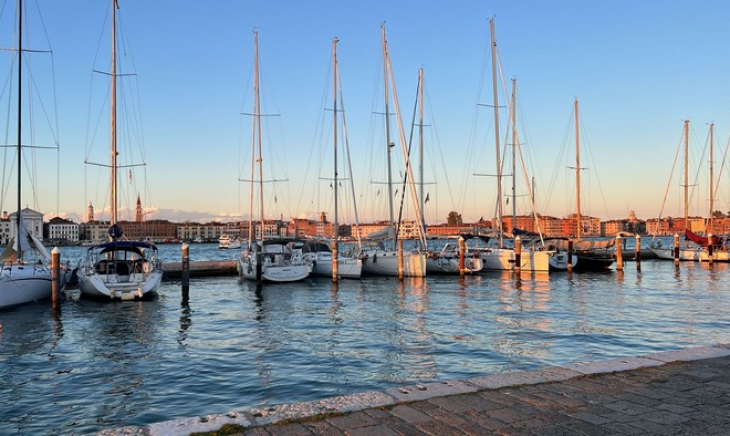Roots of the future/1 - Kierkegaard's "Aut Aut" and other great ideas for this time of crisis
By Luigino Bruni
Published in Avvenire 03/09/2022
As merchants, companies look for impressionable consumers, as producers they look for loyal workers. That is, the same people. The conflict is incipient but already serious. Environmental and energy crises have definitively unmasked the bluff: time is up. Repentance is needed: not a slow transition but a strong, decisive conversion.
«Imagine a captain on his ship when he has to do battle; perhaps he will be able to say "we must do this or that"; but the ship, while he has not yet decided, keeps advancing. The same is also true for man, in the end there comes a time when he no longer has the freedom to choose, not because he has chosen, but because he hasn't».
This page taken from Aut Aut by the Danish philosopher Søren Kierkegaard, a book from 1843, a masterpiece of modern philosophy, immediately places us in front of a decisive crossroad: «Aut-Aut: living aesthetically or living ethically». Aesthetics «is that for which man spontaneously is what he is; ethics is why he becomes what he becomes». Those who live aesthetically say: "We must enjoy life". The icon of ethical life is the spouse, the one who has made a choice and lives his life in fidelity to a commitment and a pact. The image of an aesthetic life is that of a seducer, the Don Giovanni who flies from flower to flower, who collects all the fruits he encounters along his way. It feeds on emotions; it is all about taking and losing in the present without any need to match today's choices to any of yesterday's constraints. An aesthete, as Kierkegaard defines him (every great author reinvents the words that he uses), leads his life lost in the multiplicity, in a perennial «state of indifference», because «the aesthetic choice is not a choice», it is a flow. An aesthete does not give himself any kind of task, no commitment other than what emerges moment by moment. Never satiated, always hungry for new emotions to be consumed, in a spasmodic search for happiness that never arrives because it is devoured by pleasure.
It is not difficult to identify the perfect realization of an aesthetic life described by Kierkegaard in our consumer society. A citizen inhabiting this global capitalist city is increasingly perfect the more he flies from flower to flower sucking the opportunities that lie before him. Infidelity and betrayal are necessary qualities of homo consumens, because any form of conditioning that a past choice exerts on his present choices is an inefficient bond from which to free himself. The ideal consumer is one who is reborn every day, without past or future, entirely immersed in the present where he satisfies his taste to the maximum. Agreements, promises, loyalty, are real frictions of the system, because what makes capitalism fluid and efficient is precisely the speed in the reaction of consumers in the face of the slightest variation in quality and price.
For their part, companies present themselves to consumers as agencies offering infinite objects of pleasure. Since the dawn of time, in any market, the essence of a merchant is being a seducer, and the patrons are the seduced ones, conquered and bewitched by the goods on offer. Goods are the tools with which great seduction is exercised. Insatiable consumers - non-satiety is an axiom of the economic theory of consumption - continually sought out, pursued and seduced by commodities. In the past, this seduction was also entrusted to gestures, the winks, the tone of voice and words of the sellers; its space was above all the fairs and markets in the city squares. There has always been an analogy between eros and commerce, between amorous and mercantile seduction, but in the mestizo markets of past generations, philia and agape also appeared alongside eros, freeing eros from its cage of eternity. Today, seduction is created in the research and marketing centres of large multinational corporations, and is above all carried out in the media and online, therefore body-less. The seductive trend of the economy has however increased; day by day the market is increasingly becoming a great mechanism of anonymous mass seduction, a huge system of courtship. However, it is the seduction of an eros without a body - it should therefore be no surprise to us that in an increasingly seductive and "erotic" world, centred on the pursuit of bodily well-being and health, the desire for real bodies is diminishing, addicted as we are to imagined and untouched bodies.
Capitalism is an immense garden of delights, infinite numbers of seducers and seduced plunged into a fleeting moment, new forgetful lotophages of the past and even more of the future. The twentieth century experienced enormous and unexpected success in the civilization of aesthetics. In a world that still lived in generalized scarcity, the exponential growth of consumption has allowed an extraordinary widespread well-being, especially in the North and West. This well-being of goods seduced us, first our bodies and then our souls. In the twilight of the gods, new-ancient idols glittering with gold and silver began to emerge. This is how capitalism became the new religion, all about aesthetics, and without a hell, a new eternal life: nothing but a timeless paradise. The concept of temptation has been completely cancelled and ridiculed as it is incompatible with an aesthetic civilization, which only sees it as an undue limitation of the opportunities that are present here and now. A daily and instant cult, whose ephemeral aspect guarantees an astonishing success, if its paradise can only be enjoyed at the very moment of its consumption, the only way to not get out of this bliss is to not stop buying, preferably in debt, on credit, because the new finance has perverted the economic sense of time. In the past, credit allowed the present to become the future, now consumer credit transforms the future into the present. Even the ethics of virtues know the value of the present, but its present is the place where past and future meet and prevent the present from sinking into nothingness.
A first powerful sign of the crisis of aesthetic capitalism began to emerge from the business world itself. As vendors, companies need aesthetic consumers but as producers, they need workers capable of ethics, faithfulness and loyalty. These consumers and workers, however, are the same people; the only thing that changes is the masks that they were on stage. Thus an internal conflict is born within capitalism, still incipient, but already rather severe: in order to sell and grow, companies encourage the aesthetic culture of consumers, but when they pass the gates of these companies they are increasingly deprived of that ethical capital of which companies have a vital need. There are many factors behind the recent movement of "great resignations" in the world of labour, but there is also a society that is eroding its civil assets on the altar of consumption, and finds itself with young "aesthetes" unable to cope with the impact of work, which thus remains a place of sacrifice, of resistance, of fatigue. Capitalism wants us to be adolescents in consumption and adults in work, and it is "adolescentizing" the adult world.
However, the environment has definitively exposed the bluff of aesthetic capitalism. The ecological crisis, of which the energy crisis is also a direct expression, brings Kierkegaard's great question back to the centre of the economic and political scene: Aut-Aut. A fundamental option that today has an unprecedented collective and global value, because for the first time it concerns each inhabitant of the planet. Time is up; it is no longer possible to continue living in the indifference of aesthetic life.
In Aut Aut, Kierkegaard tells us that the obligatory intermediate step one must take in order to move from ethics to aesthetics is called despair. We do not go from ethics to aesthetics through the means of a slow ecological transition. Despair is a moment, a change of perspective: it is not asceticism, but metanoia, that is, radical conversion. «The condition of your despair is beautiful. Hence, choose despair». Despair arises from repentance: «The true salvation of man is to despair». Kierkegaard compares despair with doubt: «Despair is a condition of the person as a whole; doubt is only in his or her thoughts». Doubt involves reason; desperation involves our whole of existence. Thinking about a crisis is not enough, very often it is just yet another illusion. For decades, we have been basking in doubts about sustainability: conferences, commissions, endless debates, appeals, discussions... The age of doubt must give way to that of a collective repentance and therefore despair, which is a prelude to a new ethical choice: «Despair and the world will become beautiful and full of joy for you again, even if you will see it with different eyes than before». It is necessary to despair with all our hearts, with all our minds, with all our strength, but together: a just collective despair is salvation.
We need powerful and collective symbolic acts of repentance; we must apologize to our present and our future, immediately, and then, feel the despair, because despair is the midwife of a non-vain hope after the age of illusion. Only a repentant and desperate economy can become an ethical economy. In this vital and necessary collective process of repentance-despair-ethics, we primarily need true teachers. We cannot do it alone. We need words that are different from our own. We have found many in these years in the Bible, and we will use them. In this new series of reflections, Roots of the future, we beg for greater words from writers, philosophers, poets, root-people who have felt the desperation of their time and tried to see a different one "through different eyes". Have a good journey.






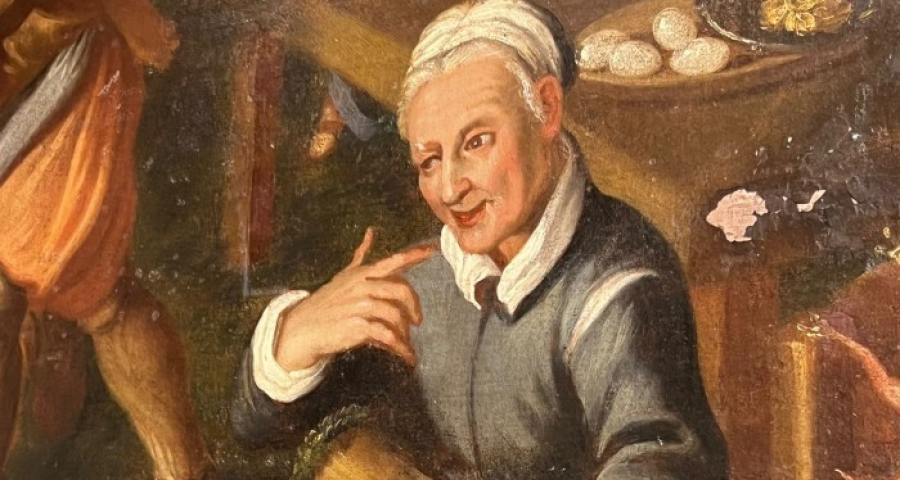
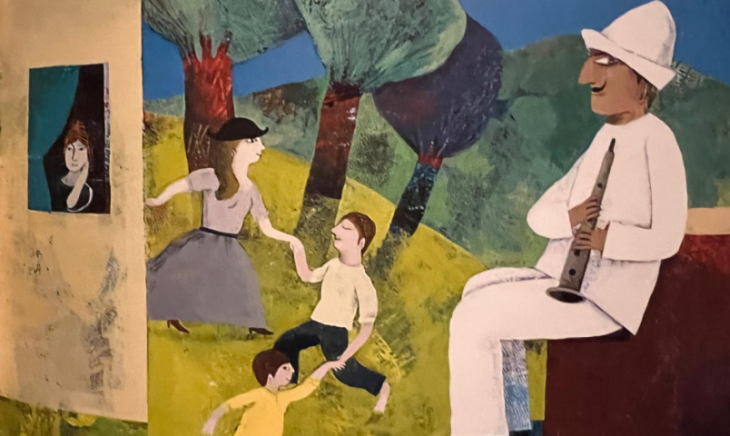
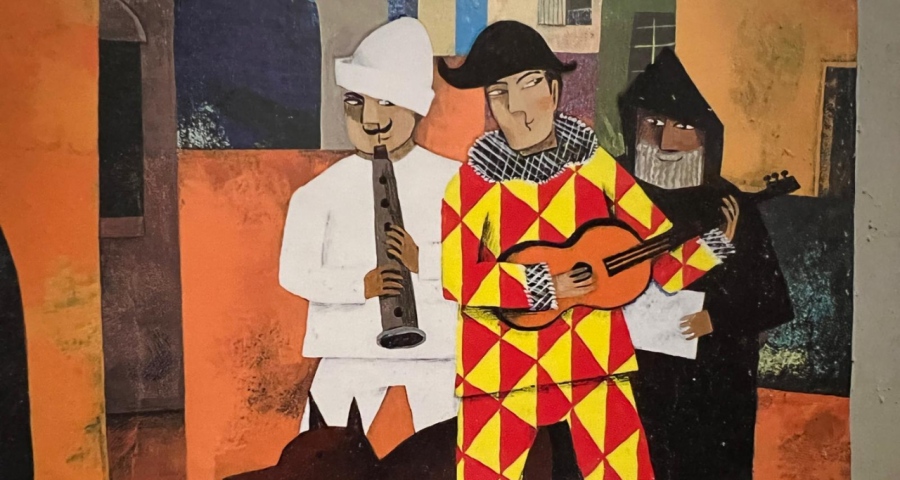
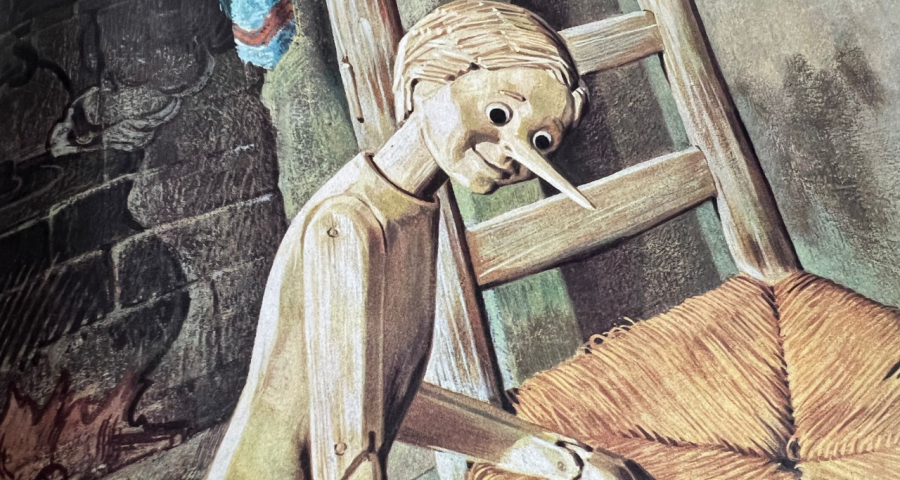
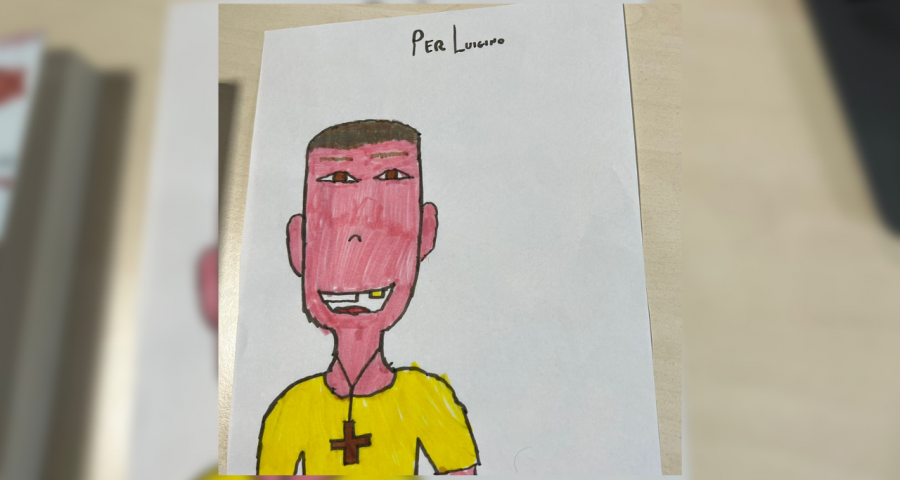
_large_large.png)
